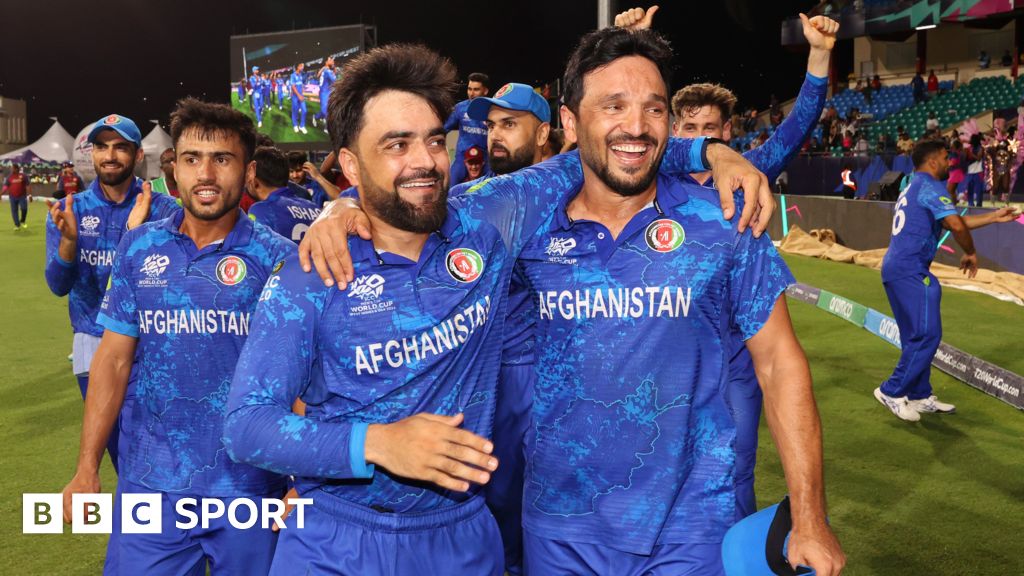For Afghanistan, qualification for the semi-final is another step on the remarkable journey they have taken since first qualifying for a T20 World Cup in 2010.
Having emerged from a labyrinth system of qualifying events in the 2000s, they have become regulars in the finals of tournaments yet have exited before the knockout rounds in their nine previous World Cup campaigns across both T20s and ODIs.
They progressed from the first of the two group stages in this year’s competition, securing the runners-up spot in Group C before losing heavily in their final match against the West Indies and being easily beaten by India in the first match of the Super 8s.
However, they came roaring back to defeat previously unbeaten Australia on Sunday to put themselves in the driving seat for semi-final qualification.
Much of their success in this tournament has been based on the mountain of runs scored by openers Gurbaz and Zadran, but the pair found themselves becalmed against Bangladesh, reaching 58 at the halfway stage of the first innings.
Zadran fell shortly after that while Gurbaz failed to push on, finally falling for 43 off 56 balls in the 17th over, his side just scraping past the 100 mark in the penultimate over.
Bangladesh had to be bold to have a chance of progressing and fell to 23-3 within three overs.
They nevertheless continued to edge towards their target around short rain showers, provoking irritated reactions on the boundary from Jonathan Trott, who has coached Afghanistan since 2022.
But the former England batter could rely on his bank of quality bowlers to ensure another chapter in Afghanistan’s storied cricketing journey was written in St Vincent.
Progress to the semi-finals was greeted by public celebrations in Afghanistan.
Because of the country’s security situation, they have never played a full men’s international on home soil, with Afghanistan’s fixtures instead held in the UAE, where a number of their players are based.
Trott himself has actually never visited Afghanistan, where the Taliban returned to power in August 2021 emboldened by the withdrawal of US and other international forces.
The Taliban’s return saw the Afghanistan’s women’s national team disbanded.
Many of Afghanistan’s women’s players were forced into hiding before fleeing the country and some international cricket sides have boycotted matches against their men’s team outside of tournaments as a result.
In March, Australia’s men pulled out of a three-match series that was scheduled to take place in the UAE in August – the third time it has declined to play Afghanistan.
The International Cricket Council told BBC Sport last year it will “continue to constructively use its influence” to assist the Afghanistan Cricket Board in “developing cricket and playing opportunities for both men and women”.

